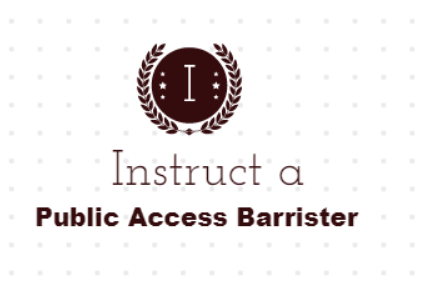I feel as if as I start this article I should apologise. What I am about to write might shock or dismay some readers.
In the world of cancel culture it seems prudent to get my apology out of the way from the start. So: I apologise here and now. Upfront. The reason?
I have seen the future in law.
That future is Artificial Intelligence: AI.
By Jason M Hadden, barrister, St Ives Chambers
Magistrates will be no more. The vast majority of cases will either be done on paper (electronically of course, not real actual paper) or remotely. Lawyers as humans where needed shall once more work from home or pods. Conveyancing will be merely a transaction undertaken by an app on your watch. The list of possibilities is endless and many will transform the way we live, work and think.
The question is not of if, but when.
Some changes have already begun. The speed of these changes is what should terrify us the most.
I remember a time when documents to the court were actually stitched and sealed (yes, I am that old) and there used to be something called a red ribbon to adorn counsel’s papers (used now to help identify my suitcase when travelling). Solicitors would actually exchange in person conveyancing documents.
We have to remember that emails in the law (at the expense of post and DX) have only really dominated the past 10 years. Mobile phones a little longer.
The covid pandemic brought a significant advancement. It showed what is possible in the here and now, even if there is this almost existential push back at the current time. Remote court hearings worked successfully (I accept the occasional teething problems) and yet now there is a reluctance for their use by certain courts.
But like the industrial revolution before it, this artificial revolution is inevitable and upon us. We must embrace rather than frustrate.
More and more law firms are finding that ChatGpt and other such apps are reducing the need for junior lawyers or legal researchers. Gone in most cases are the physical bundles, replaced by e-bundles. Law firms are increasingly using algorithms to draft contracts or skeleton arguments for litigation. AI also helps speed up due diligence and e-discovery exercises.
The question which should be being asked in every courtroom, every law office and every barrister’s chambers is what can AI do for our business. The most prudent have already asked the question.
AI is not simply a quicker, better online law library. Nor a way to compose quicker and better letters or court papers., It is fundamentally a change in the way the law will be processed and adjudicated. It also means a significant reduction in jobs as lawyers.
In February 2023, Judge Juan Manuel Padilla, in Colombia used Open AI’s chatbot ChatGPT to write a legal ruling in a case on the medical care of a child. While presiding over a case in which Judge Padilla had to decide whether an autistic child from a limited-income family had to pay medical and transportation expenses or not, he sought the help of ChatGPT. He concluded writing his judgment in favour of the child after asking ChatGPT about the case and stated that his medical plan should cover the entire expenses as his parents could not afford them. You can argue that he used the application as a judge might use a law book. Fair point. But a law book or series of such books could not provide the speed, detail and expertise needed.
In Pakistan, Judge Mohammad Amir Munir, who presides over the Phalia court in Mandi Bahauddin district of Punjab province, used the AI tool to ask legal questions about the case and whether a juvenile accused of a criminal offence could be entitled to post-arrest bail. The Judge stressed that ultimately the judicial decisions on the case were his alone, but he used the programme.
In British Columbia, the Civil Resolution Tribunal (CRT) utilises an ‘expert system’ AI for handling strata property disputes and motor vehicle claims. The system guides users through claims’ elements, consolidating necessary information and online resolutions.
In the US they have used AI to deploy in predictive policing and judicial risk assessments. Tools like PredPol use algorithms to predict crime likelihoods in specific zones, altering police deployment strategies. The COMPAS system, for example, assesses recidivism risks in criminal cases, influencing pretrial release and sentencing decisions.
I note too of magazine stories in 2019, of what was enthusiastically referred to an ‘AI Judge’ being used in Estonia to make decisions on small claims cases. Not quite the Terminator, more the Adjudicator.
To be fair this was subsequently denied by the Estonian Ministry of Justice as being untrue. Currently: they did accept that they were still searching for ICT means to make court’s workload, including administrative burden more bearable.
Yet, in China, relatively simple claims are already being decided through algorithms
And why not?
Why can’t an ‘AI Judge’ determine a simple road traffic accident? Rather than a District Judge get out his set of matchbox cars on to his courtroom desk to work out who was to blame for the accident, why can’t an ‘AI Judge’ using an algorithm process the law on the issue, assess previous judgments, consider their statements, consider the road semantics, weather conditions, CCTV, etc and provide a judgment?
With a debt matter; consider all of the questions which define a contract and workout using the law whether a sum is owed.
The ‘AI Judge’ would apply the law, remove emotion and provide a judgment. It is when we accept that it is possible that we then start to consider how it would work in different areas of law.
What about simple criminal cases? Those of speeding, parking illegally, or assault? Those matters dealt with by Magistrates in the criminal field. Would a ‘AI Judge’ not be able to deal with those matters better, fairer and indeed more efficiently?
What about in the family court? A non-molestation order needs to meet certain criteria under s.42 of the Family Law Act 1996. Why couldn’t the same principles be applied by the ‘AI Judge’? Or simple contact disputes in Children Act matters. From Lay to Robot Bench.
I wholly accept and recognise that this will be a significant shift. That there will be rumblings that this is not acceptable (hence my early apology). That it will be unfair, against a right to a fair trial. A dystopian nightmare perhaps. But the ‘AI Judge’ could potentially make simple decisions in such matters in seconds. Not the weeks and months currently being experienced in the court system.
There would, as there is now, be an appeal process to a judge. A human-judge. You could start by asking the parties whether they would consent to using the ‘AI Judge’; but I accept that this would be a short-term segway into the reality of such processes taking over.
The question of bias, of ethics, will of course, as it should, raise its head. These are questions which have been raised before about human tribunals.
One of the risks is that the programmers and the data analysist will within the code embed their bias. Their rights and their wrongs. This is because AI relies on data produced by humans, which is imbued with human preferences and inclinations. Data reflects pre-existing biases, intentionally or otherwise. This was an issue with the COMPAS system, with reported bias against Black defendants. There are many other instances of data bias against other groups in society.
But don’t we as human beings form intentionally or unintentionally our own set of biases. All human decisions are susceptible to prejudice and all judicial systems suffer from unconscious bias, despite the best of intentions. These too factor into the decision making of courts, not only in the UK, but around the world. The current system is not perfect.
It is wholly accepted that Ai could, if in the wrong hands makes matters worse. There have and will continue to be teething problems (and these should in no way be underestimated as to their seriousness). But that should and will not be a bar to progress.
The ‘AI Judge’ would need to have robust checks and balances. Rigorous testing, checking and their approach and decision-making overseen by the most senior members of the judiciary.
With any AI decisions being afforded a proper appeal process (as it does now). But with over 120,000 judges across the world dealing with 19 million cases a year it makes sense for the ‘AI Judge’ to take and carry some of the burden. We can only guess at how much time and money will ultimately be saved. That will sadly, inevitably mean the loss of jobs; but will create others.
An article in Law.com in July 2023 shared that African firms were “the firm is seeing about a 50% reduction in lawyers’ time in document review, 25% in transaction management and about 45% in litigation.” This is happening globally.
But there is an inevitability about it. Yes, it will be a “paradigm shift” but it will happen. Of that I have no doubt. I appreciate that some may take a more nuanced view; stress the limitations; question the public perception and acceptance of the ‘AI Judge’ and argue that I have potentially overstated the capacity of artificial intelligence, at this time. I might even be called a visionary (or worse).
But Governments are already looking to see how they can use AI to transform the world in which we live; to ultimately streamline costs and efficiencies. Look at the changes to everyday banking? The legal system is made for such transformations. The key is to make sure (as best we can) that we deal with the ethical issues now. Change is coming. The evolution is here. And for that I apologise.
Jason M Hadden, barrister, St Ives Chambers




